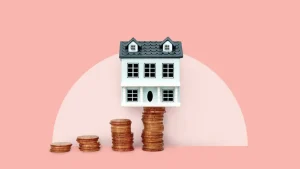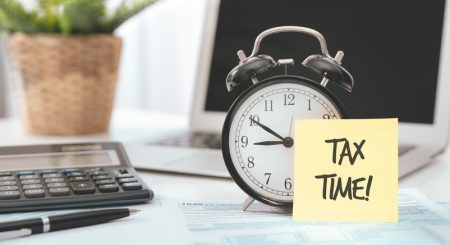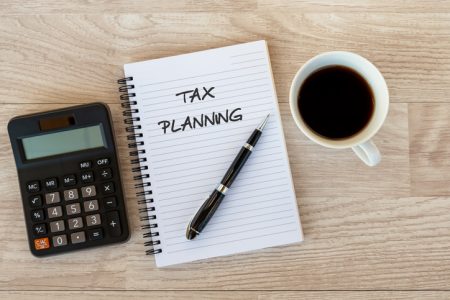Selling your home can have tax consequences if its value has gone up. The IRS offers an exemption that lets you exclude some of the profit from capital gains tax when selling your primary residence, as long as you meet certain rules. This can save you a significant amount of money. Knowing how the exemption works could help you plan ahead and get the most benefit when you sell.
A financial advisor can help you understand capital gains tax rules and create a tax-efficient plan for selling your home.
What Is the Capital Gains Tax Exemption for a Primary Residence?
Capital gains tax is the tax you pay on the profit earned from selling an asset. When you sell your primary residence, you may be eligible for the capital gains tax exemption. With all that you stand to save, this is is one of the most valuable tax benefits for homeowners.
Under current IRS rules, individuals can exclude up to $250,000 of profit from the sale of their primary residence. However, married couples filing jointly can exclude up to $500,000. This means you could sell your home at a substantial profit without any federal capital gains tax. First, though, you must meet the eligibility requirements.
IRS Eligibility Requirements

The IRS sets two main criteria for claiming the exemption: the ownership test and the use test. To pass these tests, you must have owned and lived in your home as a main residence for at least two of the previous five years before the date of sale.
Special rules apply for certain life events. For example:
- If you marry and your spouse meets the ownership and use tests, you may qualify for the $500,000 exemption sooner.
- If your spouse dies, you may still be eligible for the full $500,000 exemption for a limited time. However, you first must meet certain conditions.
Meeting these requirements is essential to qualify for the exemption from capital gains tax on primary residences. This will help you avoid unexpected liabilities while allowing you to put more money in your pocket.
Partial exemptions may apply if you sell your home due to specific circumstances, such as a job relocation, health reasons or other unforeseen events, even if you have not met the two-year requirements. In those cases, the IRS prorates your exclusion amount.
Calculating Your Capital Gain
Capital Gains Tax Calculation
Sale Price – Adjusted Basis = Capital Gain
Let’s take a look at an example. Say your purchase was $300,000, and you made $50,000 worth of improvements to your home. That gives you an adjusted basis of $350,000. If you sold the home for $600,000, and your selling expenses were $30,000, your calculation would look like this:
$600,000 – $350,000 – $30,000 = $220,000
In this example, a single filer’s $250,000 exemption from capital gains tax on primary residence would eliminate the entire gain from taxation.
Exceptions and Special Circumstances
Not all home sales fit neatly into standard rules. The IRS offers flexibility in certain cases.
- Military service, Foreign Service or intelligence community. You can suspend the 5-year ownership and use test for up to 10 years while on qualified extended duty.
- Work-related moves. If you sell due to a job location change, you may qualify for a prorated exemption.
- Health-related sales. Medical needs that require relocation may also allow partial exemptions.
- Involuntary conversions. If your home is destroyed, condemned or taken through eminent domain, special rules apply.
- Mixed-use property. If part of your home was used for business or rented out, the exemption may be reduced for that portion.
When You May Owe Capital Gains Tax
There are situations where you will still owe tax despite owning and living in your home.
- Your profit exceeds the $250,000/$500,000 exclusion.
- You have not met the ownership or residency test.
- You have claimed the exemption for another home sale within the last two years.
- Your income is high enough to trigger the 3.8% Net Investment Income Tax (NIIT) on top of capital gains tax.
Strategies to Reduce or Avoid Capital Gains Taxes
If you worry about exceeding the exemption limit, there are ways to reduce your taxable gain. You may even able be able to avoid capital gains tax altogether.
- Time your sale carefully. Wait until you meet the two-out-of-five-year rule to qualify for the full exclusion.
- Increase your basis. Keep detailed records of home improvements to raise your adjusted basis.
- Coordinate with life events. Marriage or the death of a spouse can impact your exemption amount.
- Use a 1031 exchange for investment properties. If your primary residence was converted to a rental property, a 1031 exchange may defer taxes.
Frequently Asked Questions
Can I Claim the Exemption More Than Once?
Yes, you can use the exemption multiple times during your lifetime but not more than once every two years. The IRS frequency test prevents you from claiming the primary residence capital gains exemption on multiple sales within a two-year period.
Is the Exemption available for a Second Home or Vacation Property?
No. The exemption from capital gains tax on primary residence applies only to your main home. However, if you convert a second home into your primary residence and meet the ownership and use tests, you may become eligible in the future.
Does the Exemption Apply to Inherited Property?
When you inherit a home, the IRS gives you a stepped-up cost basis to the property’s fair market value at the date of death. This often eliminates or reduces capital gains when you sell, even though the primary residence exemption rules do not apply in the traditional sense.
Can Married Couples Get the Full $500,000 Exclusion If Only One Spouse Owned the Home?
Yes, if one spouse meets the ownership test and both meet the residency test, the couple may still qualify for the full $500,000 capital gains exemption for a primary residence when filing jointly.
What If Part of My Home Was Used for Business or Rental Purposes?
The exemption may be reduced for the portion of the home used for business or rental property. The IRS may require you to pay capital gains tax on that portion, even if the rest of the home qualifies for the exemption from capital gains tax on primary residences.
Bottom Line

The capital gains tax exemption for primary residences can save homeowners large amounts when selling, but you must meet IRS rules on ownership, residency and how often you claim the exclusion. Planning ahead can help you time the sale to qualify, and even if you don’t meet all the requirements for the full benefit, you may still be eligible for a partial exclusion that reduces your tax bill.
Tax Planning Tips
- If your capital gains are substantial, you may need to plan for the tax bill in advance. This is where a financial advisor can recommend tax planning strategies to minimize your liability. Finding a financial advisor doesn’t have to be hard. SmartAsset’s free tool matches you with vetted financial advisors who serve your area, and you can have a free introductory call with your advisor matches to decide which one you feel is right for you. If you’re ready to find an advisor who can help you achieve your financial goals, get started now.
- If you want to know how much your next tax refund or balance could be, SmartAsset’s tax return calculator can help you get an estimate.
Photo credit: ©iStock.com/marchmeena29, ©iStock.com/Jacob Wackerhausen, ©iStock.com/phakphum patjangkata
Read the full article here












